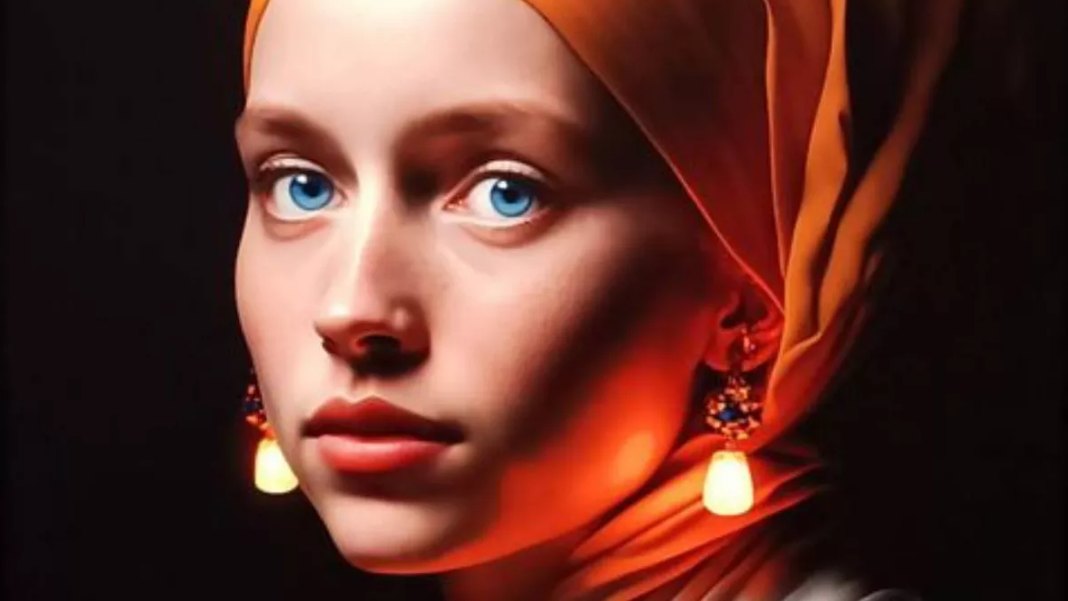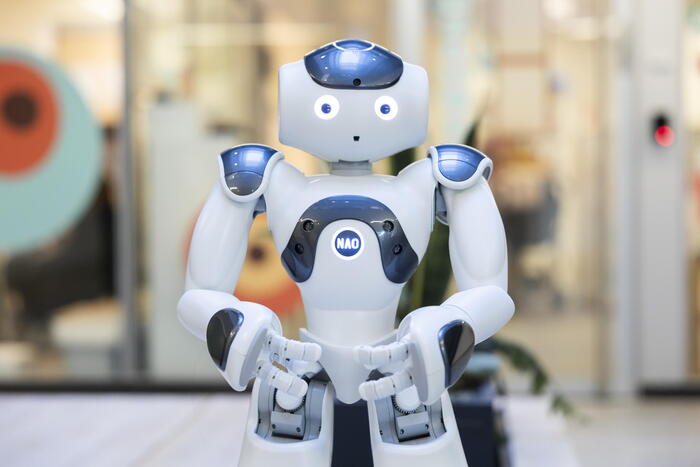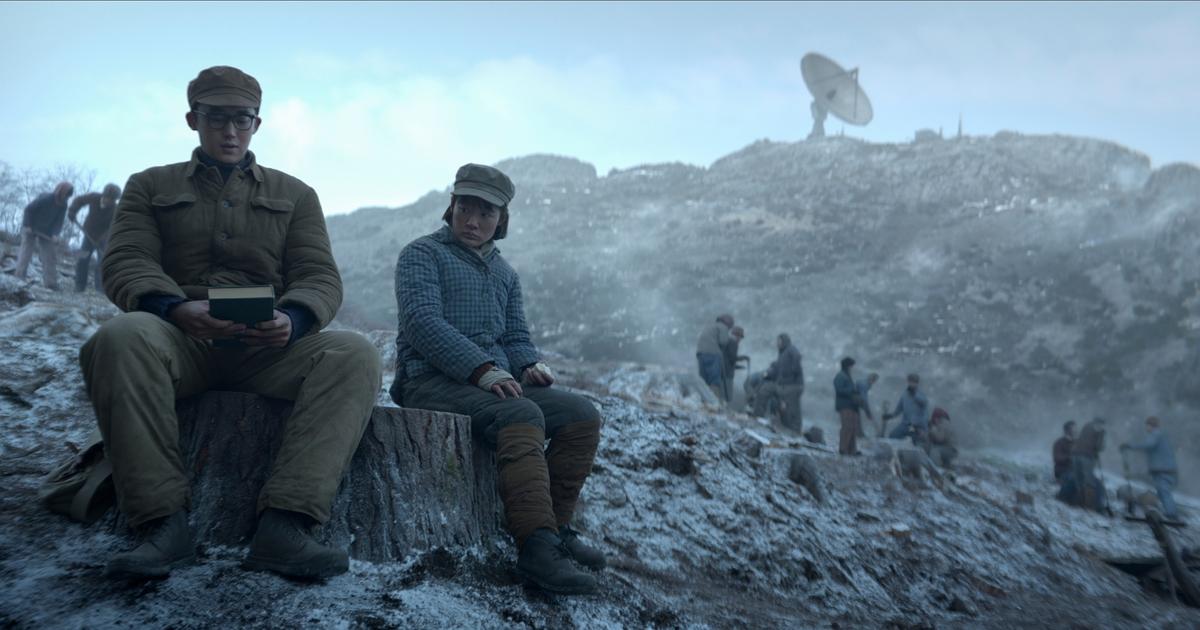Hugues Dufour is a game designer, creative director, essayist and screenwriter. His latest book
Art facing AI - Towards an augmented imagination
, was published by FYP editions in February 2023. (204 p., €22.70)
FIGAOVOX. - In the Netherlands, the Mauritshuis Museum exhibited an alternative version of Vermeer's painting "The Girl with a Pearl Earring", developed using artificial intelligence software. This choice has been strongly criticized because, according to some, a production made using AI cannot be considered a work of art. Isn't the artist however destined to use new technologies to magnify his work
?
Hugues DUFOUR. -
From my point of view, what shocked the public is that for the first time a work entirely designed by an AI finds itself sacred within an institution as powerful as a museum.
There was a precedent in 2022, when Jason Allen won a digital art competition in the United States with a work also created by an AI.
But the jury did not know the provenance of the winning work, it was fooled.
What changes with the Mauritshuis Museum case is that the museum consciously chose to exhibit the digital work, as if it were a work created by a “real” artist.
Read also“Faced with the advent of artificial intelligence, we lack philosophers”
In a way, all museums sanctify the works they exhibit, giving them an aura.
It is this aura, undeserved for some, that causes scandal.
Of course, all artists use the tools their time provides.
But artificial intelligence is not a tool like any other, because it makes it possible to generate works without the artist's talent (or know-how) being directly solicited.
Not to mention complex copyright issues, since generative AIs are trained from works that are not always copyright-free.
Can we consider that artificial intelligence programs are themselves artists? Can AI create, or does it only reproduce and imitate?
What is revolutionary and shocking about both the generative AIs of images (Midjourney for example) and texts (the famous chatGPT), is that they provoke in the user a feeling of uncertainty as to the results they provide, which is not, a priori, what is expected of an algorithm.
With the same textual proposal, one can obtain a multitude of different images.
That's what makes them so addictive, because they're somehow unpredictable, like casino slot machines.
If amazement is what is expected of a work of art, then generative AIs can be said to be creative.
What is new with artificial intelligence is that the mathematical processes that lead to "beauty" are perfectly invisible, even mysterious.
Hugues Dufour
The fact that they reproduce or imitate already existing works is philosophically an insoluble problem.
For example, in Plato, imitation in art is strongly depreciated, whereas it is not at all in Aristotle.
Moreover, all artists are obliged to imitate the artists they like, before finding their own style.
For my part, I think that one can create by imitating provided that this imitation is meaningful.
There is the current limit of generative AIs, because they are not aware of imitating, so they do not convey meaning in their works.
It is therefore a pact that we make with the machine: we expect proposals for works from it and we hope to find a meaning in them, like when we exhibit them in a museum.
Wanting to produce art by AI, doesn't it amount to limiting oneself to a purely mathematical conception of "beauty"?
Many times in the history of art, beauty has been conceived mathematically.
Just think of the invention of perspective, which produced many masterpieces in the field of painting.
Our era has even sacred the best artists of the Renaissance, such as Leonardo da Vinci, emblematic figure of the artist and the scientist.
Beauty and mathematical science are therefore not necessarily opposed.
Another example, in music this time, some 20th century artists tried to produce perfectly mathematical music, like Xenakis with stochastic music.
Music is a very mathematical art, as evidenced by the famous music of the Pythagorean spheres.
So it's not new.
What is, however, is that the mathematical processes that lead to “beauty” are, with AI, perfectly invisible, even mysterious.
We can rationally analyze a painting constructed according to the rules of perspective and understand how we arrive at the result, but we cannot know how the AI generates this or that image.
This is the black box phenomenon, which causes a feeling of disturbing magic.
We cannot easily go back from the result produced to its algorithmic origin, the generated image not responding to any rationally preconceived canon.
You write in your book “One of the greatest challenges that awaits the artist of the future will be to learn how to transfer his creative power to the machine, without losing the humanity of his creation”. What do you mean ?
Steven Spielberg recently gave an interview in which he spoke about AI in art, and is worried about this phenomenon.
He asserts:
“the soul is unimaginable and inexpressible, it cannot be created by any algorithm.
It's just something that exists in all of us
.
The soul cannot therefore, according to him, be simulated.
However, don't we say that inanimate objects can have a soul?
That's what animists think.
This is not to say that objects have a soul in themselves, but that we can lend them one by projection.
AI represents the ultimate democratization of art, the promise that fiction can be continuously and qualitatively generated by everyone, in a personalized way.
Hugues Dufour
Thus, we can very well project everything that makes sense to us on a work, whether it is generated by an AI or by a human.
To return to the fake Vermeer, would he have caused a scandal if we did not know his technological origin?
Is it unworthy of art and therefore of man, when the image produced has obvious aesthetic qualities?
The whole issue is in fact in the transfer of sacredness that takes place: the artist who uses AI transfers part of his sacred character, of his “soul”, to the machine.
But this transfer of sacredness to the machine must not be synonymous with the loss of the sacred for man, as if it were a simple communicating vessel.
A world where the machine would continuously and automatically create artistic content, be it films, series, or books, isn't it the culmination of the entertainment and virtual society in which we live? Wouldn't that be the triumph of fiction?
Absolutely !
It is even the culmination of the reflections that I carried out in my book.
Fiction is already omnipresent, whether in the video games that put us on stage, in the social networks where we stage ourselves, in series and in the mass media where life itself even is staged.
We constantly invent stories through fiction that entertains us, amuses us, sometimes informs us, but always puts us in touch with others, while questioning us about ourselves.
In a way, we can say that our modernity has prepared us perfectly for the generative AI revolution.
To read alsoMichel Houellebecq: “Fiction, for man, is not only a pleasure;
it is a need"
The end of the big stories has given way to a multiplicity of small juxtaposed stories, with which we live according to our moods.
It's the ultimate democratization of art, the promise that fiction can be generated continuously and qualitatively by everyone, in a personalized way, and no longer just by artists with a recognized style.
And since humans cannot produce fiction as quickly as a machine, it is likely that the latter will assist us more and more in the incessant flow of fictions that our time demands.
Hugues Dufour, Art facing AI - Towards an augmented imagination, ed.
FYP, 204 p., 22,70€ FYP Editions








/cloudfront-eu-central-1.images.arcpublishing.com/prisa/OHXLFBWROJHYTONFRSHBKYUOIU.jpg)
